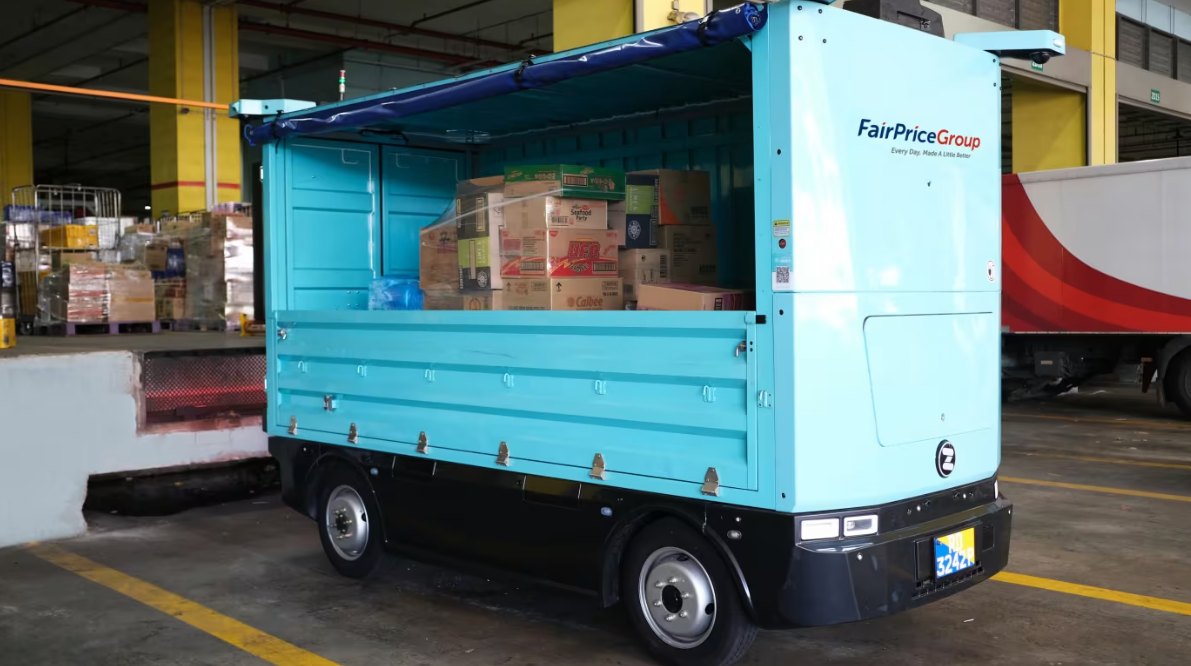SINGAPORE: FairPrice Group is set to conduct Singapore’s first trial of a self-driving electric truck, marking a step forward in autonomous transportation for logistics. The group announced that it has received approval from the Land Transport Authority (LTA) to begin testing driverless trucks on the country’s highways.
The self-driving truck, developed by Zelos Technology, a leader in autonomous vehicle technology, has a cargo capacity of up to 1.5 tons. According to FairPrice Group, if the trial proves successful, the company plans to integrate these autonomous trucks into its existing logistics fleet. This would allow for more efficient transport of goods, particularly on pallets, between its wholesale centres located in Benoi and Joo Koon.
The introduction of self-driving trucks brings with it several potential benefits. One of the key advantages is efficiency. Autonomous trucks can operate around the clock without the need for rest breaks, potentially reducing delivery times and increasing the overall capacity of logistics systems. Additionally, electric trucks produce zero emissions, contributing to Singapore’s efforts to achieve sustainability goals and reduce its carbon footprint.
Autonomous technology also has the potential to improve safety on roads. In theory, driverless vehicles are less prone to human errors such as fatigue, distraction, or impaired driving, which are major causes of accidents. If properly programmed and maintained, these trucks could lead to a reduction in traffic incidents, especially in the long-term.
However, the adoption of self-driving trucks also comes with challenges. One major concern is the current level of technological maturity. While advancements have been rapid, self-driving systems are still evolving, and there are concerns about how these vehicles might respond to unexpected situations on the road, such as sudden obstacles or erratic driving by other vehicles. There is also the question of public acceptance, as some may be wary of sharing the road with autonomous trucks.
Moreover, the introduction of self-driving vehicles could have economic implications. While automation promises to boost efficiency, it could also lead to job displacement for drivers in the logistics and transportation sectors. Striking a balance between technological innovation and workforce protection will be key to ensuring that the adoption of such technology benefits society as a whole.
FairPrice Group’s initiative will undoubtedly be closely watched, and the results of this trial will provide important insights into the viability of autonomous trucks, potentially setting the stage for broader implementation in the near future.

